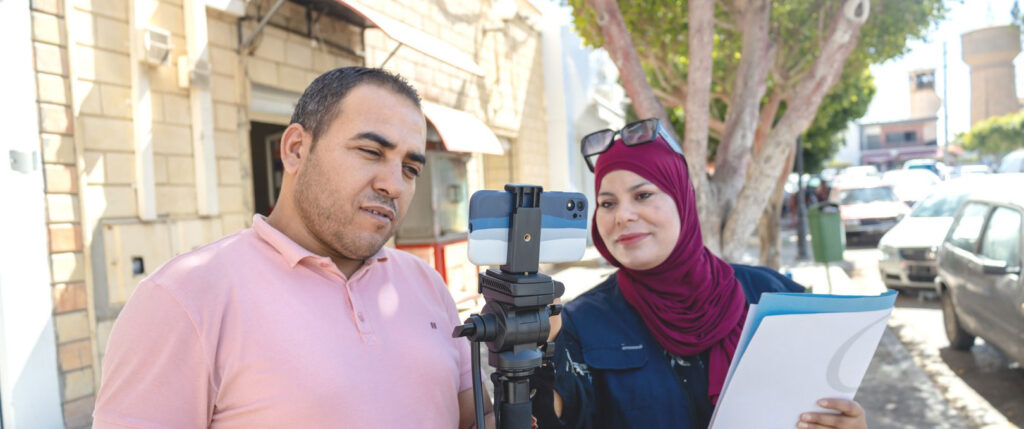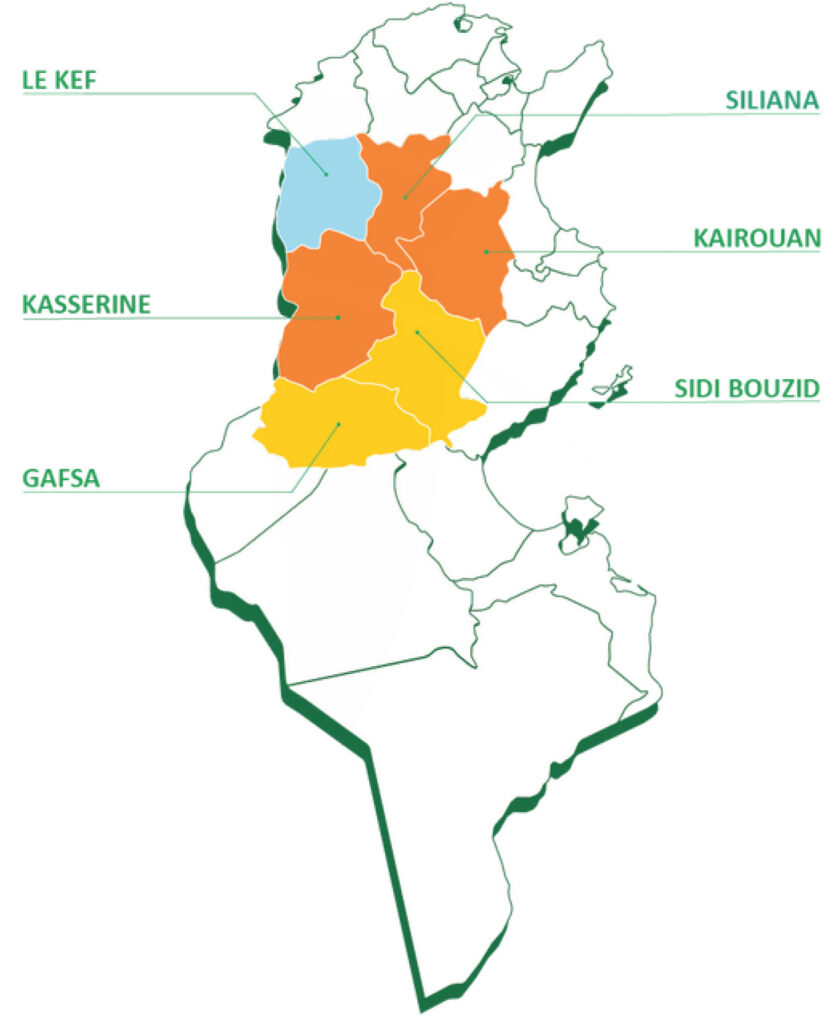
Since 2020, Fondation Hirondelle has been implementing the media component of the PACT (Participation Active des Citoyennes et Citoyens Tunisiens) programme, in consortium with the Danish organisation NIRAS. The aim of the project is to expand civic space and encourage dialogue between governments and citizens, particularly the most vulnerable, so that public action can be genuinely co-constructed in the high steppes region (governorates of Gafsa, Kairouan, Kasserine, Kef, Sidi Bouzid and Siliana).
Phase 2 of the project started in May 2023. Fondation Hirondelle is pursuing its commitment by continuing to support local media as players in good governance and sustainable development at local level.

Financial volume 2023
115,636 CHF
Sources of funding
- Switzerland (SDC mandate) via NIRAS
Key figures for 2023
14 media partners
19 media professionals trained
6 governorates
5,500 users on social networks
2 broadcast languages
4.5 hours of video production
Context
The political transformation that Tunisia has undergone since 2011 continues to present the country with structural difficulties. In response to this crisis, the President of the Republic took drastic measures that have given rise to controversy, including the introduction of a new constitution in 2023. On the economic front, the country’s financial situation has deteriorated sharply. Against this tense backdrop, the number of illegal immigrants seeking to reach Europe has reached record levels, social unrest has grown and human rights abuses have risen sharply.
Opening up public space and encouraging dialogue
Faced with this reality, Fondation Hirondelle has supported the creation of a network of 19 journalists, almost 80% of whom are women, with an average age of between 25 and 35. This network, trained and coached in local governance issues, represents 14 local and regional media. Since 2021, these journalists have produced more than 270 pieces of journalistic content, including 232 video reports. This content has not only covered the issues addressed by the projects supported by the PACT programme, but has also highlighted public policy issues such as the difficulties of accessing local governance structures and the lack of employment opportunities for young people.
The network of journalists and media partners is being expanded, with a target of 20 to 25 new media by the end of 2024, including web radio stations, citizen journalists and bloggers.
The journalistic content was disseminated by the network’s media, on their airwaves and online platforms, as well as on a dedicated Facebook page, which gave them greater visibility.
The PACT program also aims to build the capacities of communities, to improve their ability to communicate on their issues, and of the network’s media, in terms of conducting debates, mobile journalism and investigative journalism.
Our impact
The active journalistic coverage provided by the local media and their ongoing information on municipal actions and the challenges faced by citizens have greatly contributed to the dynamic of dialogue. They have also helped to establish a culture of accountability and transparency in municipal work, as well as providing citizens with access to reliable and useful information, thereby fostering a strong demand for accountability.
Testimonial
“Thanks to this training, our journalist has acquired many new journalistic techniques, which we will use in our radio station and our programmes.”
Tarek Benhmissi, Director of Radio Sufetula in Sbeïtla.
.
Priorities
- Encouraging participatory democratic local governance
- Support the role of the media and civil society as local development players
Activities
- Production of radio content focused on local issues
- Capacity-building for the network’s communities and media
Previous project in Tunisia
From 2011 to 2016, the national Tunisian Radio benefited from a program of Fondation Hirondelle expertise, advice, training, and technical support to help reform it into a genuine public service media and bring its regional stations closer to the population, as part of democratic transition in Tunisia after the revolution of December 2010 / January 2011.
Click here to see our previous project in Tunisia
